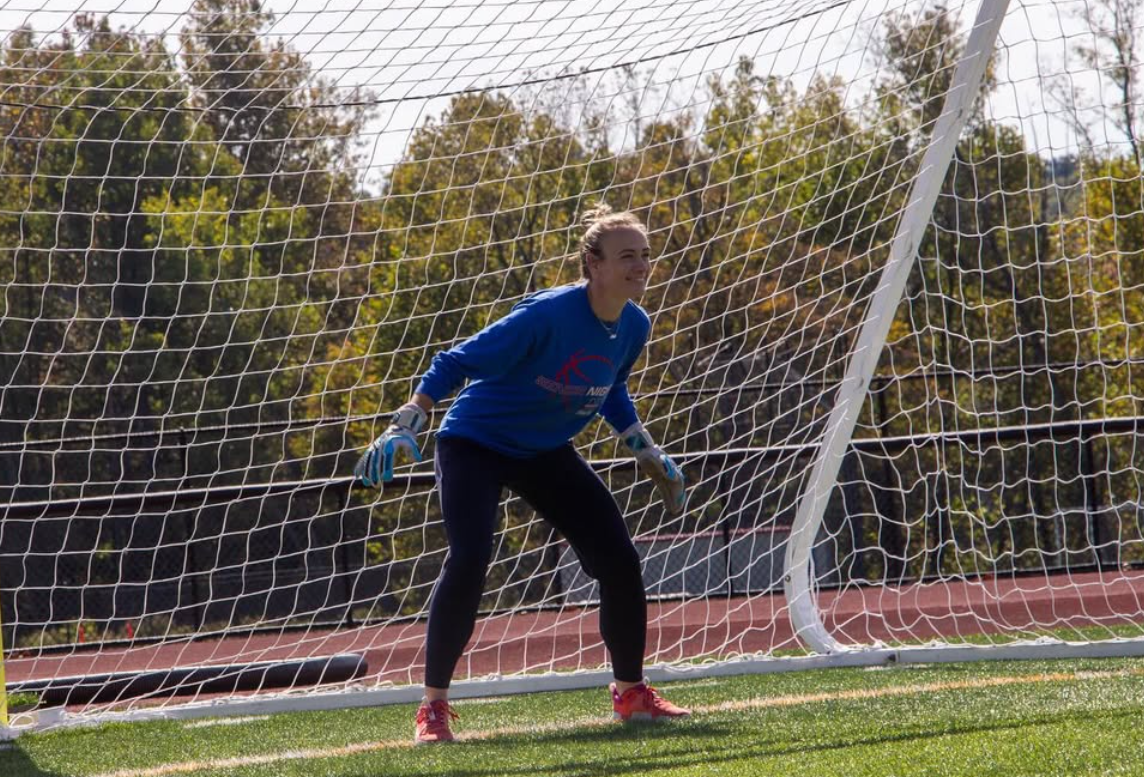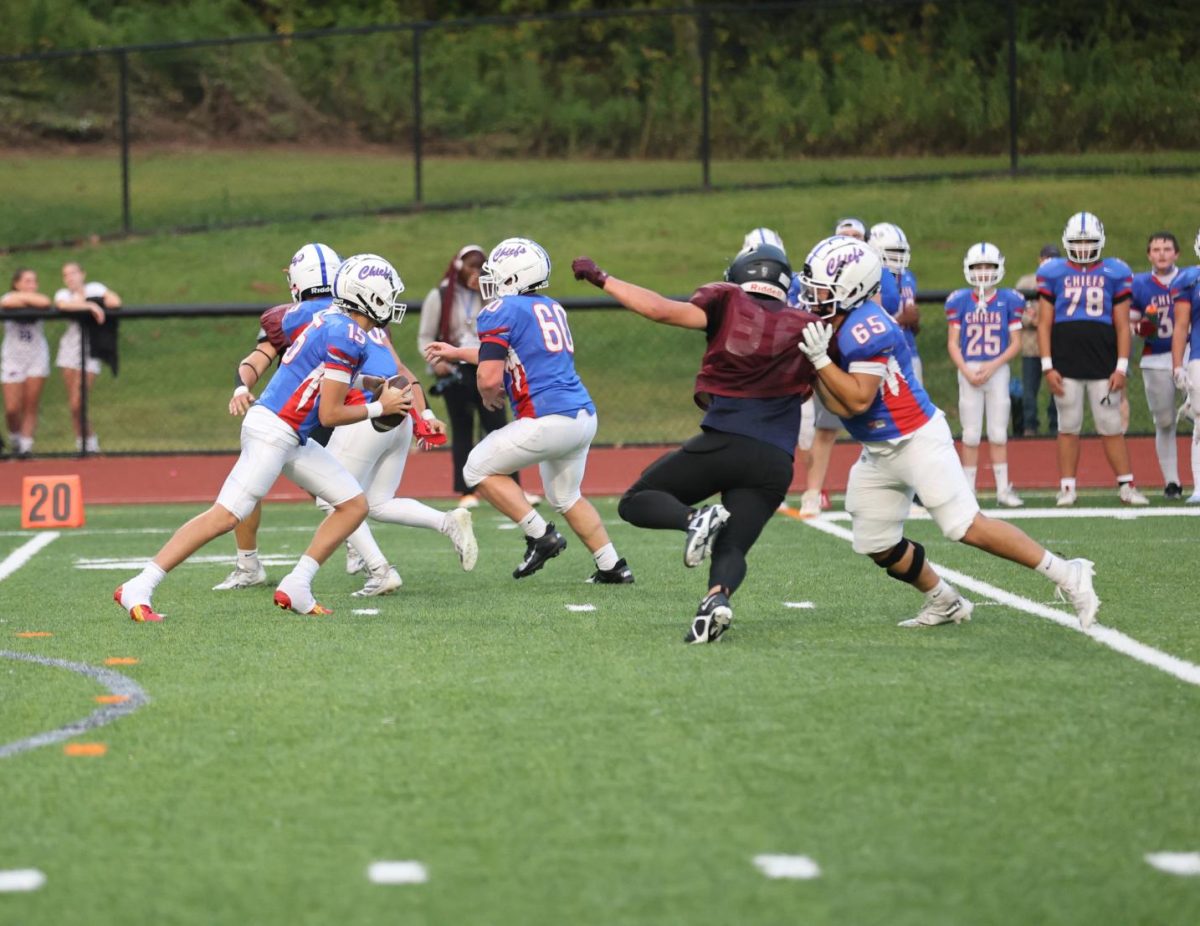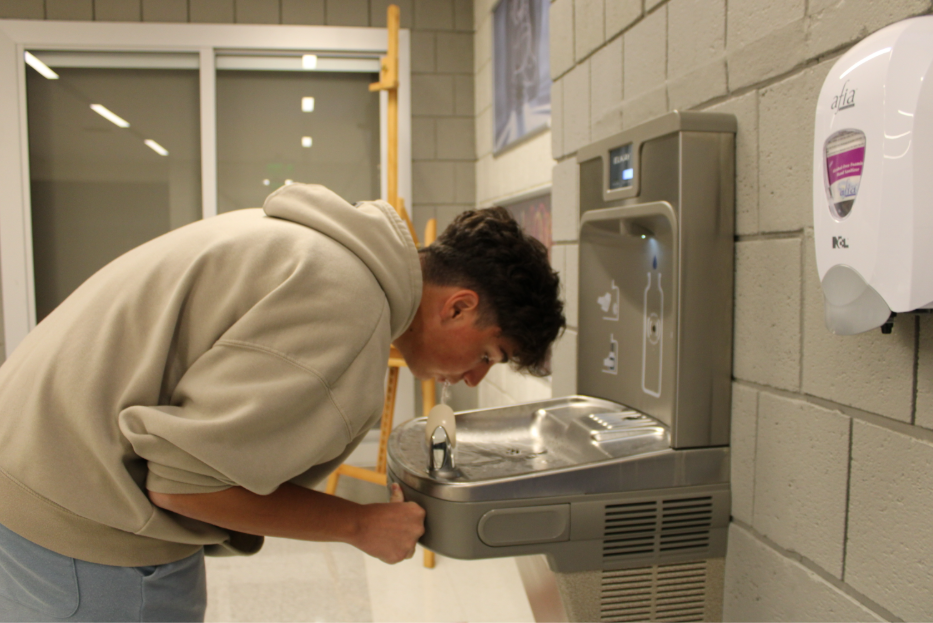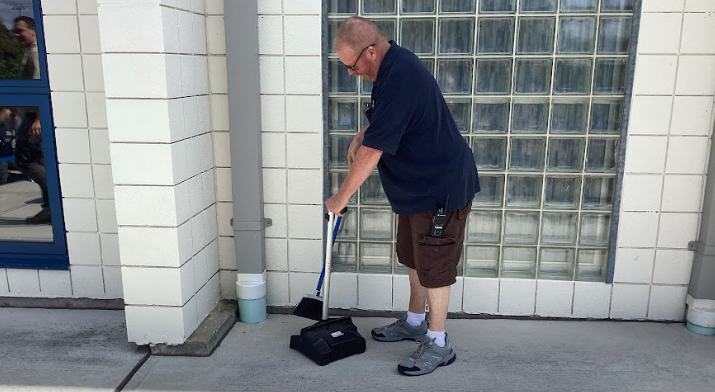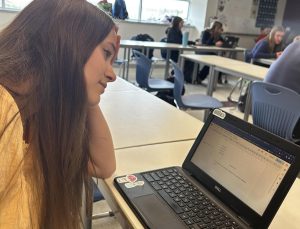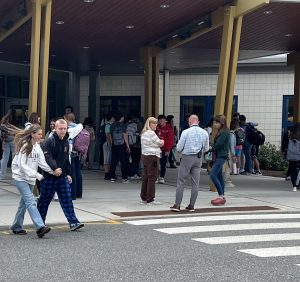Remote Learning Tests Testing Students, Teachers
The remote learning model has immensely impacted testing at Nonnewaug High School. Students now take tests using websites like Google Forms.
December 10, 2020
WOODBURY — With the recent transition to fully remote learning, students and teachers at Nonnewaug High School are adapting to new online methods for testing.
“It has had varying impacts throughout the building,” Nonnewaug assistant principal Taryn Fernandez said. “Many courses have continued with or moved to more project-based/proficiency-based assessments which allow students to use the resources available to them through the internet and working/speaking with others. Others have utilized online testing resources. Others have maintained traditional assessments, requiring students to be on-camera during testing and submitting their responses via pictures.”
Some students feel that testing has become easier since moving online.
“Distance learning made tests a little easier because I am in the comfort of my own home,” said senior Anthony George.
“[It is] easier because there is less stress,” junior Paige Brandt added. “I feel calmer being able to take it at home.”
The remote learning model has led most teachers to make tests open-notes, which could alleviate stress for students. However, some think that this actually makes the tests harder because teachers are increasing the difficulty of the questions.
“In some cases, teachers have gone to open books/notes tests, but then make questions more application-based questions, rather than having a fact answer that the student just spits back,” said Nadine Pratt, a science teacher at NHS.
Some students are also finding it hard to focus on a test in their home environment.
“I think the tests are more difficult because the testing environment is more chaotic and distracting than at school,” said junior Owen Hale.
Moreover, agriscience students have been largely affected by the shift from hybrid learning to remote learning. Their curriculum is usually highly dependent on being in person for performance-based assessments, so the online model not only changes the way students learn material, but also the way they are tested on it.
“Distance learning has for sure made tests harder,” senior Chris Stowell said. “With ag designed to be hands-on, it is hard to suddenly change the way that we learn this information. I went from being tested on tree-climbing techniques to traditional tests.”
“Performance-based assessments become nearly impossible,” junior Hannah Kostka added. “Especially in ag science, where a lot of tests require a physical skills assessment, there isn’t much of an alternative that provides for fair test taking.”
In addition, the remote learning model has made it more difficult for teachers to connect with students and ensure that they are understanding the material before a test, as well as to monitor them as testing is taking place.
“It also makes it harder from a teacher standpoint to make sure students are not cheating,” said Pratt. “We can use Google Forms and use a lockdown browser mode in it so students can’t open up any other tabs on their Chromebooks, but that doesn’t mean they have no other device present that they could use to cheat.”
The main issue that both students and teachers have been faced with, however, is technical difficulties.
“It isn’t so much the content of the tests that is changing but the concern of the platforms being used to take tests and quizzes,” said Kostka. “Oftentimes, I will get stressed about not being able to submit something or the technology malfunctioning so my teacher is unable to see my assignment.”
“There is more area for problems involving online tests, such as time constraints and internet issues,” said senior Maddie Meenan. “Personally, I had my Chromebook crash right before I submitted a quiz so I had to redo it. However, once I finished, the time limit of the quiz expired.”
Due to some of the problems associated with online learning and testing, the administration is considering not giving midterm exams for the 2020-21 school year.
“It will positively affect students by not disrupting the schedule any further,” said Fernandez. “I can’t think of a negative effect, as we will still have final exams that will help prepare students for college courses that are based on a final exam model.”
While this school year has been far from normal and people are definitely feeling the stress of the times, NHS is committed to making it as much of a positive experience as possible.
“I think that distance learning poses a great opportunity for educators to ensure that our assessment is as close to real-world experiences and applications of learning as possible,” said Fernandez.





